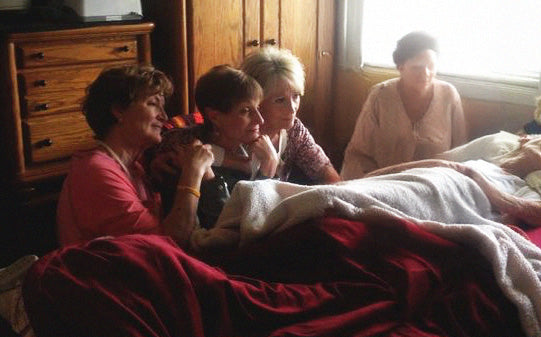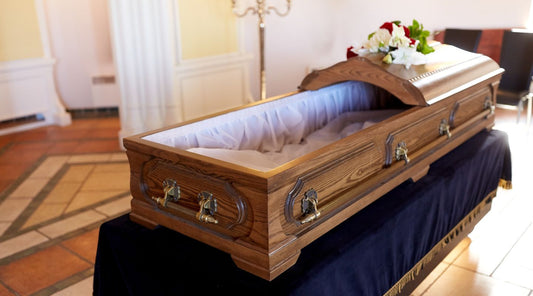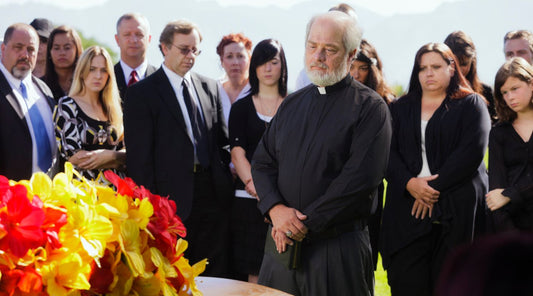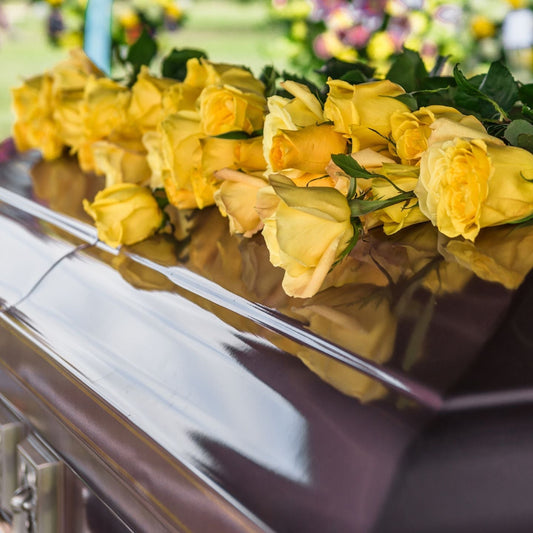
Transforming the End-of-Life Experience: The Role of Death Doulas and Holistic After-Death Care
Trusted Caskets is part of a major trend reshaping how Americans manage the end-of-life process. Families and individuals are relying less on traditional resources like funeral homes and religious guides in favor of more personal celebrations and remembrances. The landscape of end-of-life care is changing as more people are turning to death doulas and holistic after-death care practices.
This evolution in end-of-life plans reflects a growing desire for compassionate, personalized, and sustainable approaches to dying and bereavement. Death doulas, also known as end-of-life doulas or death midwives, play a crucial role in this movement by providing emotional, spiritual, and practical support to individuals and their families during one of life’s most challenging phases. Holistic after-death care practices, which integrate natural burial, home funerals, and personalized rituals, are redefining how we honor and remember our loved ones).
What is a Death Doula?
The word “doula” comes from the Greek word meaning “woman who serves,” though most people associate it with someone who helps during birth to usher in life. In the last few years Americans have recognized that loved ones entering into a end of life phase benefit from a support systems similar that provided at the start of life. This is part of the "death positivity" movement, which is gaining momentum in the United States and other countries. Popularized by the mortician and writer Caitlin Doughty, who encourages families to enter into open discussions about death and dying, sharing their feelings about mortality.
Death doulas are trained to offer a range of services that address the various needs that arise as death approaches. Their primary role is to provide companionship, advocacy, and education. They serve as companions to the dying, offering emotional support and a comforting presence during a deeply vulnerable time. This support helps alleviate the fear and loneliness often associated with the dying process.
As advocates, death doulas assist individuals and families in navigating the healthcare system. They ensure that the dying person's wishes are respected and implemented, whether that involves medical decisions, personal preferences, or legal considerations. This advocacy often extends to mediating conversations between the dying person and their loved ones, helping to facilitate open and honest communication about death and dying. Education is another critical aspect of a death doula's role. They provide information about what to expect during the dying process, explain the physical and emotional changes that may occur, and offer guidance on preparing for these changes. This educational support helps demystify the dying process and empowers families to make informed decisions.
Historical Context
The concept of death doulas is relatively modern, emerging as part of a broader movement towards natural and personalized death care. This movement seeks to reclaim traditional death and dying practices, emphasizing personal involvement and natural processes. Historically, caring for the dying and the deceased was a community and family responsibility, but this changed with the rise of the funeral industry in the 20th century. Death doulas are part of a growing effort to return to these more intimate and personalized practices..
The role of death doulas gained prominence alongside the natural death care movement, which advocates for options like home funerals and green burials. These practices focus on reducing the environmental impact of death and making the process more meaningful for those involved. Death doulas play a crucial role in facilitating these alternatives by providing the necessary support and guidance to families who choose these paths.
Death doulas are non-medical professionals who offer compassionate and holistic support during the end-of-life process. They serve as companions, advocates, and educators, helping to create a more meaningful and peaceful experience for the dying and their loved ones. Rooted in the natural death care movement, death doulas are reshaping our approach to death and dying, bringing it back to a more personal and intimate practice.
What Do Death Doulas Do?
Death doulas provide a range of services designed to support individuals and their families through the dying process. Their holistic approach addresses emotional, spiritual, and practical needs to ensure a meaningful end-of-life experience. Here’s an overview of the critical services they offer according to the INELDA:
Pre-Death Services
Life Review and Legacy Projects: One of the significant services death doulas provide is helping individuals review their lives and create lasting legacies. Doulas might document personal stories, create memory books, or record messages for loved ones. These activities offer a sense of closure and a way to leave a tangible legacy that future generations can cherish.
Advance Care Planning: Death doulas assist with advance care planning, helping individuals articulate their wishes for medical treatment and end-of-life care. They facilitate the creation of advance directives and living wills, ensuring the dying person’s preferences are known and respected. This planning also involves mediating difficult conversations between the dying person and their family, helping everyone understand and support their expressed wishes.
During Death Services
Vigil Presence: During the final days and hours of life, death doulas often maintain a vigil, providing continuous emotional support to the dying person and their loved ones. They create a calming and comforting environment, including managing the physical setting—lighting, music, and scents—to align with the person’s preferences. Their presence helps to alleviate fear and anxiety, providing a sense of peace and dignity in the final moments.
Emotional and Physical Support for Caregivers: Death doulas offer respite for exhausted caregivers, stepping in to provide practical care and emotional support. This might involve assisting with personal care tasks, coordinating with medical professionals, or simply being there to listen and provide comfort. By supporting caregivers, doulas help reduce burnout and ensure that caregivers can engage meaningfully with the dying process.
Post-Death Services
Early Grief Support: After the death, death doulas continue to support the family through the early stages of grief. They help families process their emotions and experiences, guiding them through the initial shock and sorrow. This support can include organizing memorial services, advising on funeral planning, and providing resources for ongoing grief counseling.
Guidance on After-Death Care Options: Death doulas educate families about their options for after-death care, which may include natural burial, home funerals, and other personalized rituals. They help families understand that they have choices beyond conventional funeral home services, empowering them to create ceremonies that honor their loved ones meaningfully.
Death doulas play a crucial role in the end-of-life process by offering comprehensive support that spans emotional, spiritual, and practical needs. Their services ensure that the dying experience is managed with dignity, respect, and personal significance, benefiting the dying individual and their loved ones. Through their holistic approach, death doulas help transform the way we view and handle death, fostering a more compassionate and personalized end-of-life experience.
Holistic After-Death Care Practices
Holistic after-death care practices are becoming increasingly popular as people seek more personal and environmentally conscious ways to honor their loved ones. These practices emphasize sustainability, personalization, and emotional healing, offering alternatives to traditional funeral and burial methods. Here’s an exploration of some critical holistic after-death care practices:
Natural Burial and Home Funerals
Natural Burial: Natural burial, also known as green burial, is an eco-friendly option that aims to reduce the environmental impact of conventional burials. In natural burial, the body is interred without embalming in a biodegradable coffin or shroud, allowing it to decompose naturally. This method conserves resources and minimizes pollution, aligning with ecological principles. Natural burial sites often double as conservation areas, preserving open spaces and fostering biodiversity.
Home Funerals: Home funerals are another holistic practice that brings the funeral process back into the hands of the family. They involve caring for and preparing the body at home, allowing for a more intimate and personal farewell. Families can participate in washing, dressing, and laying out the deceased, which can be a deeply meaningful and therapeutic experience. Home funerals enable families to hold personalized ceremonies that reflect the values and wishes of the deceased, fostering a sense of closure and connection.
Rituals and Memorials
Personalized Rituals: Personalized rituals are a cornerstone of holistic after-death care. These rituals can include various activities, such as planting trees, scattering seeds, or creating memorial gardens. Death doulas often assist in crafting these rituals to honor the deceased’s life and values. For instance, scattering wildflower seeds or placing painted stones around a gravesite can create a living memorial that evolves and grows over time, symbolizing the continuing cycle of life and death.
Memorial Services: Holistic memorial services often deviate from traditional formats, incorporating elements that reflect the unique personality and beliefs of the deceased. These services feature music, poetry, storytelling, or other forms of creative expression. The goal is to create an environment where family and friends can share memories, express their grief, and celebrate the deceased's life in an authentic and meaningful way.
Emotional and Spiritual Support
Grief Support: Holistic after-death care extends beyond the immediate aftermath of death to support ongoing grief and healing. Death doulas and other practitioners provide resources and guidance to help families navigate their grief. This might include counseling, support groups, or therapeutic activities such as journaling or art therapy. By addressing the emotional and spiritual dimensions of loss, holistic practices aim to foster a more comprehensive healing process.
Spiritual Practices: Holistic after-death care can incorporate appropriate rituals and ceremonies for those with spiritual or religious beliefs. This might involve prayers, meditations, or blessings tailored to the deceased's and their family's beliefs. Death doulas often work with families to integrate these practices in a way that respects and honors their traditions.
Holistic after-death care practices offer a compassionate and personalized approach to end-of-life rituals. By emphasizing natural burial, home funerals, personalized rituals, and comprehensive emotional support, these practices provide meaningful ways to honor the deceased and support the bereaved. They represent a shift towards more sustainable and heartfelt methods of saying goodbye, transforming how we think about death and dying.
Impact on Families and Caregivers
Death doulas significantly impact families and caregivers by providing essential support and guidance throughout the end-of-life process. Their holistic approach addresses both emotional and practical needs, offering comprehensive care that can alleviate the burden on loved ones.
Emotional and Practical Support
One of the most critical roles of death doulas is to offer emotional support to families and caregivers. They provide a compassionate presence, helping loved ones navigate the complex emotions accompanying the dying process. By facilitating open conversations about death and encouraging the expression of feelings, death doulas help reduce fear and anxiety, fostering a more accepting and peaceful environment).
Death doulas also assist with practical care, easing the burden on primary caregivers. This support can include personal care tasks, coordination with medical professionals, and respite care, allowing exhausted caregivers to rest. By stepping in to handle these responsibilities, death doulas enable caregivers to spend more meaningful time with their dying loved ones, enhancing the quality of their final moments together.
Facilitating Open Communication
Another crucial service provided by death doulas is facilitating open and honest communication about death. They encourage families to discuss their fears, wishes, and expectations, helping to create a shared understanding and respect for the dying person’s preferences. This mediation can prevent misunderstandings and conflicts, ensuring the end-of-life experience is harmonious and aligned with the loved one’s desires.
Enhancing Quality of Life
By focusing on the emotional well-being of both the dying person and their family, death doulas significantly enhance the quality of life in the final stages. They help create a peaceful and supportive environment tailored to the individual’s needs and wishes. This holistic care approach benefits the dying person. It leaves a lasting positive impact on the family, providing them with comforting memories and a sense of closure.
Death doulas play an invaluable role in supporting families and caregivers through the end-of-life journey. Their holistic approach ensures that both emotional and practical needs are met, fostering a compassionate and respectful experience that profoundly impacts all involved.
Training and Certification of Death Doulas
A death doula's role is profound and complex, requiring specialized training and certification to ensure they can provide comprehensive and compassionate care. Training programs equip death doulas with the necessary skills and knowledge to support individuals and families through the end-of-life process.
Training Programs
Numerous organizations offer training programs for aspiring death doulas. As mentioned, the most well-known is the International End-of-Life Doula Association, the Lifespan Doula Association, and the University of Vermont’s End-of-Life Doula Professional Certificate program. These programs typically cover many topics, including the emotional and psychological aspects of dying, practical care techniques, and the importance of cultural and spiritual sensitivity.
The INELDA model, for example, focuses on three main aspects of care: summing up and planning, vigil, reprocessing, and early grief. This comprehensive approach ensures that death doulas are well-prepared to support both the dying person and their loved ones at every stage of the journey.
Skills and Competencies
Training programs emphasize the development of critical skills and competencies. These include:
- Emotional Resilience: Death doulas must be able to manage their own emotions while providing unwavering support to others. Training includes techniques for self-care and maintaining emotional boundaries.
- Effective Communication: Doulas learn to facilitate open and honest conversations about death, helping families express their fears, wishes, and needs.
- Practical Caregiving: Training covers a range of practical skills, such as personal care, managing the physical environment, and coordinating with medical professionals to ensure seamless care.
Certification
While there is currently no standardized credentialing body for death doulas, certification from reputable training programs is highly regarded. Certification typically involves completing a set number of training hours, passing assessments, and demonstrating practical experience. Programs like those offered by INELDA and the Lifespan Doula Association provide certification that signifies a doula's preparedness and commitment to high standards of care.
Professional Development
Continuing education is crucial for death doulas to stay updated with best practices and new developments in the field. Many organizations offer advanced courses, workshops, and peer support networks to help doulas continue their professional growth. This ongoing learning ensures that death doulas can provide the most current and practical support to those they serve.
Training and certification are essential components of a death doula’s professional journey. Through rigorous education and skill development, death doulas are equipped to offer compassionate and holistic care during one of life’s most challenging phases. Their commitment to ongoing learning and professional development ensures they can meet the diverse needs of individuals and families with expertise and empathy.
The Future of Holistic End-of-Life Care
Holistic end-of-life care is gaining recognition and momentum as more people seek compassionate, personalized, and sustainable options for their final days. The future of this field looks promising, with several key trends and developments shaping its evolution.
The demand for holistic end-of-life care is expected to rise significantly as awareness increases and societal attitudes towards death and dying shift. More individuals and families recognize the value of personalized and meaningful end-of-life experiences. As people become more informed about their options, the preference for natural burials, home funerals, and individualized memorials will likely continue expanding.
Integration with Traditional Healthcare
One of the most promising developments in the future of holistic end-of-life care is its integration with traditional healthcare systems. Death doulas and holistic care practitioners increasingly collaborate with hospices, hospitals, and home health care providers to offer comprehensive end-of-life support. This collaboration ensures that patients receive medical care and the emotional, spiritual, and practical support holistic practitioners provide. Such integration can provide a more seamless and supportive experience for the dying person and their family.
Cultural Shifts
Societal attitudes towards death are gradually changing, with a growing acceptance and openness about discussing and planning for end-of-life. This cultural shift is crucial for the continued growth of holistic end-of-life care. As death becomes less of a taboo topic, more people will feel empowered to explore and choose holistic options that resonate with their values and beliefs. This shift is also supported by educational efforts from organizations and advocates who work to demystify death and promote a more accepting and proactive approach to end-of-life planning.
Technological Advancements
Advancements in technology are also playing a role in the evolution of holistic end-of-life care. Digital platforms and tools are being developed to assist with advance care planning, legacy projects, and virtual memorial services. These technologies can make holistic care more accessible and help individuals and families navigate the complexities of end-of-life decisions more effectively. Online communities and resources provide additional support and education, further driving the adoption of holistic practices.
The future of holistic end-of-life care points to growth and wide adoption, with increasing demand, greater integration with traditional healthcare, cultural shifts towards openness about death, and the aid of technological advancements. As these trends continue to develop, holistic end-of-life care will likely become a mainstream option, offering compassionate, personalized, and meaningful experiences for the dying and their loved ones. This evolution promises to transform our approach to death, making it a more natural and accepted part of life.
The role of death doulas and holistic after-death care practices is pivotal in transforming the end-of-life experience. These compassionate professionals provide invaluable support, addressing emotional, spiritual, and practical needs, ensuring the dying process is managed with dignity and respect. The services offered by death doulas, from life reviews and legacy projects to vigil presence and early grief support, cater to the diverse needs of individuals and their families during this profound journey.
Holistic after-death care practices, including natural burial and home funerals, offer eco-friendly and personalized alternatives to traditional funeral methods. These practices help families create meaningful rituals and memorials that honor their loved ones' values and wishes, fostering a deeper connection and sense of closure. The growing demand for such services, coupled with increasing integration with traditional healthcare systems, signifies a significant cultural shift towards more accepting and proactive approaches to death and dying.
The future of holistic end-of-life care looks promising due to technological advancements and ongoing education and professional development for death doulas. These improvements enhance the support available to families. As society embraces these compassionate and personalized practices, we can expect a more humane and dignified approach to the end-of-life process. This will transform our collective experience of death and dying into greater peace, acceptance, and significance. By acknowledging and respecting the natural cycle of life and death, we pave the way for a more meaningful and sustainable future in end-of-life care.


